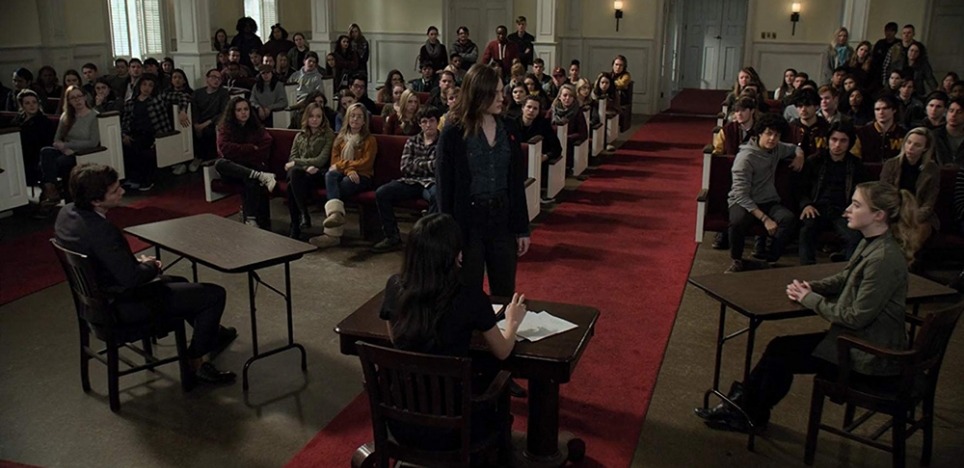In the 10-part Netflix series The Society, the high school students of a suburban town return from a bus trip to discover that all the adults are gone and their community is totally cut off from the outside world. (See our review of the series for names of the key characters, a plot synopsis, and discussion of some of the themes.)
At one of their first community meetings, the student council president suggests that until they have some answers about what has happened, they should figure out how they are going to live together. One student questions, "Which one of us gets to decide who gets what?" Another answers, "It's called democracy."
This Values & Visions Guide is designed to give you and your group opportunities first to discuss the issues the youth in The Society have to deal with, and second to consider how those same issues play out in your own lives.
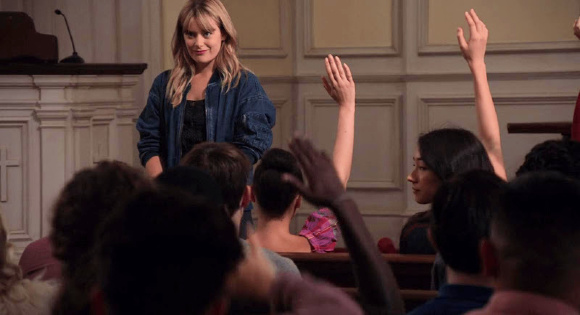
1. Democracy
In the overview to The Practicing Democracy Project on S&P, we write: "Democracy is more than the system of government. It is a way of life based upon citizens' commitment to the common good. We can assess the vitality of any democracy by looking at its history, its current state, and its potential to serve the hopes and dreams of its people. But the truest measure of its health is how well it is practiced."
- What are the most critical issues and decisions the youth in New Ham face? How do the different factions deal with them? How well do you think they practice democracy? Give a specific example.
- What do you think are the benefits and challenges of living in a democracy in the modern world? Is democracy a way of life for you? How do you practice it?
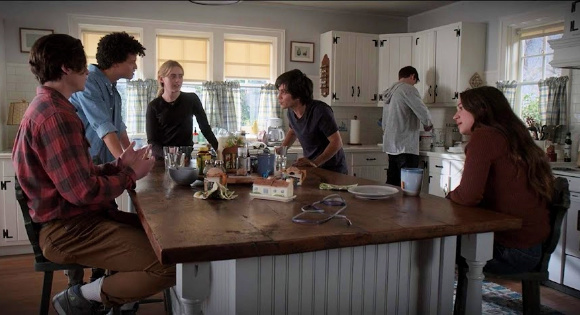
2. Leadership
Byron Katie writes in A Thousand Names for Joy: "I don't know what's best for me or you or the world. I don't want to change you or improve you or convert you or help to heal you. I just welcome things as they come and go. That's true love. The best way of leading people is to let them find their own way."
- Discuss the different leadership styles of Cassandra, Allie, and Lexie. Which other characters do you consider to be leaders in New Ham?
- What character qualities do you admire in a leader? Do you think, as Byron Katie suggests, that leaders need to let people find their own way? What do you think would happen?
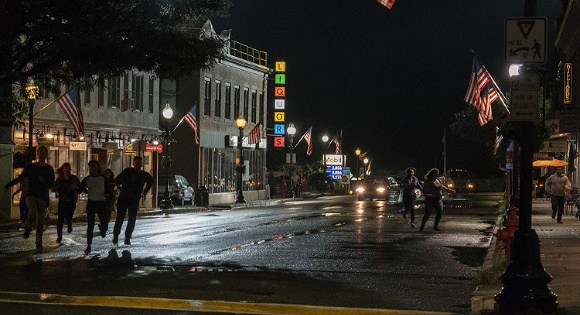
3. Fear
Wayne Muller in Legacy of the Heart writes: "When we are in fear, we focus all our attention on the point of danger and lose our capacity to find a courage, security, or peace within ourselves. We become so obsessed with what threatens us that the inner strengths of the heart become inaudible. . . . When we are afraid, we lose our ability to feel our own inner strength, and things precious and vital within us are smothered by our anxieties. When we spend all our days worried about how things will turn out, planning for whether we will have enough food, clothing, money, or love, then what kind of life have we protected? In spite of our plans and strategies, we never feel at peace."
- Many of the youth in New Ham are fearful. What are their biggest fears? What strategies to combat fear seem to work and which don't help?
- As you watched the series, what gave you the creeps? What did you find yourself worrying about? In terms of your own community life, what do you fear most? What is your most effective fear-buster?
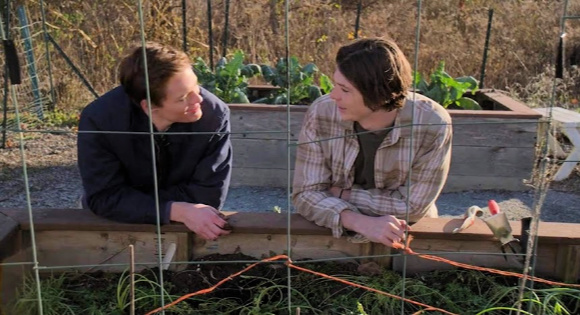
4. Chores and Challenges
Sociologist Amitai Etzioni, author of An Immodest Agenda, writes: "We must balance the desire to focus on one's own interests with some obligation to the commons. True, duties are not fun, otherwise there would be no need to impose them. But a civil society cannot do without them."
- In The Society, the young people don't have to deal with money, conflicts with their parents, and school pressures. But they do have work assignments. Do you understand the resistance to the community work that emerges? How do you explain it? How you ever run into this phenomenon?
- How do you think you would fare if you were thrown into a situation like the one depicted in The Society? What would you find to be most challenging? What could you contribute to the community? Share an example from your own life.
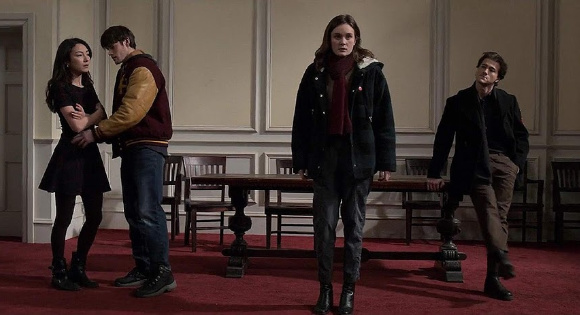
5. Dissent
Historian Henry Steele Commager wrote: "If our democracy is to flourish, it must have dissent."
- How is dissent handled in The Society? What steps would you suggest to encourage constructive criticism and the honoring of different points of view?
- Have you ever felt shut out of a community discussion, discouraged to offer a different point of view? Share your experience. What change could have made a difference in your particular situation?
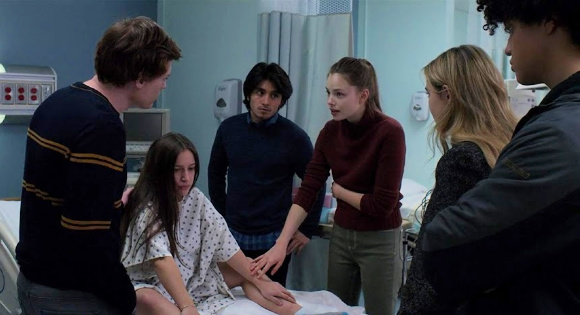
6. Community
In Making the Connections, Beverly Wildung Harrison says: "I believe that our world is on the verge of self-destruction and death because the society as a whole has so deeply neglected that which is most human and most valuable and the most basic of all the works of love — the work of human communication, of caring and nurturance, of tending the personal bonds of community."
- Which characters in The Society are the best at communication, caring, and tending the bonds of community? Point out specific moments when they are engaged in these works of love.
- How can you nurture and strengthen the bonds of community where you live or work?
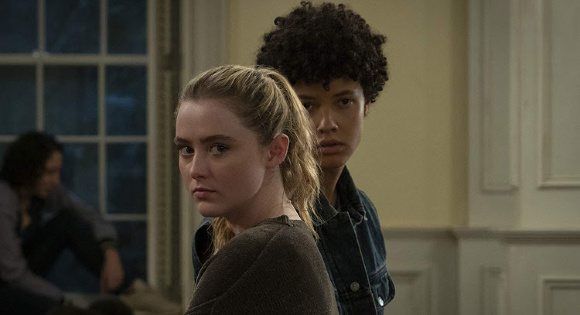
7. Choices
In Choices: Making Right Decisions in a Complex World, Lewis B. Smedes writes: "We all make choices that touch other people's lives, as well as our own, in ways that leave us wondering whether we are really doing the right thing. A strange inner force now and then trips us into asking ourselves, 'But is it right?' This force, this hormone of our conscience, does not let us stifle it for long; it may sleep for a while, but eventually, when doubt lingers on after the act is done, it wakes up and sneaks into our minds as a creeping disquiet, a vexing misgiving that we might have done the wrong thing. Sooner or later, most of us have a personal rendezvous with a trembling hunch that we have made a wrong choice."
- As of June 2019, Netflix has not announced whether there will be a second season of The Society, but given the audience and critical support for the series, one is expected. And, we predict, a major theme going forward will be the question of whether the choices the characters have made are the "right" ones. Doubts about what they are doing and have done creep up on several characters in season one. Which choices and reactions to them surprised you? Which did you expect?
- Would you have made the same choices as Allie and the other leaders in New Ham? Which would you question? How do you usually react when your "hormone of conscience" sneaks into your mind as a vexing misgiving that you might have done the wrong thing. If you feel comfortable doing so, share an example with your group or a friend.
